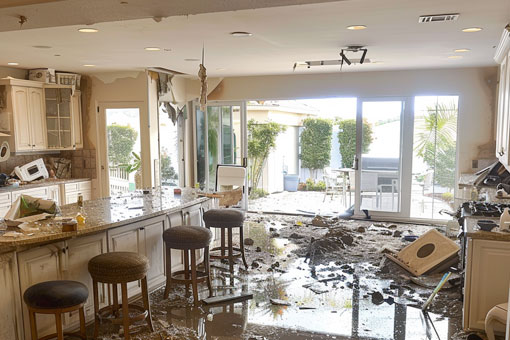
5 Causes of Electrical Short Circuits in Home
Apr 17, 2024Are you awestruck by the flashing lights or sudden shutdowns of appliances? These are signs that indicate short circuits in electrical power, which are common in lots of homes. These can cause problems or security threats. If you are aware of the reasons for these short circuits within electrical wire, and adopt preventive steps, you'll be able to protect your family members and home from injury or danger. Let's take a trip through the complex world of wires and circuits to clarify this crucial topic.
Understanding Electrical Short Circuits
Before we begin our journey into the cause of short circuits caused by electrical current we need to understand the nature of short circuits. Imagine your home's electricity system like a grid of roads, using electricity acting as the vehicle that navigates these roads. A short circuit in the electrical system is when an unintentional detour or a shortcut interrupts the flow, which causes an irregular movement of electricity. This can lead to excessive heat, sparks and even fire, which are scenarios that should be avoided at all cost.
Overloaded Circuits: A Hidden Menace
One of the biggest causes of electrical short circuits is the problem of circuits that are overloaded. Imagine this scenario: there are too many devices or appliances competing for attention on one circuit, which is similar to trying to squeeze a huge quantity of water into a short hose. This excessive current flow can affect the wiring of breaker boxes particularly for outdoor breaker boxes which can lead to explosions or leaks.
Faulty Insulation: The Silent Saboteur
Another sneaky cause of short circuits caused by electrical current is a weak wiring insulation. In addition to acting as a barrier, insulation is responsible for the smooth movement of electricity. However, things like rodent interference and exposure to extreme temperatures or moisture or physical damage resulting due to renovations may cause damage to the integrity of insulation. Regularly inspecting wires, which includes those in outdoor breaker boxes, will prevent indications of damage and prevent the risk of a short circuit.
Water Intrusion: A Recipe for Disaster
Electricity and water are a dangerous partnership, capable of creating short circuits easily. Water leaks from plumbing or roofing and accidents with water-exposed appliances or elevated humidity levels in moist areas could all lead to conductors for electrical current in areas that should not exist. To prevent this from happening ensure that you keep electrical appliances out of sources of water and promptly fix any leaks,
Loose Connections: A Spark in the Dark
As time passes, the connections in your electrical system can become loose, due to the settling of your structure, vibrations from appliances or faulty installation. These loose connections can lead to an event known as arcing. This is a process where electricity flows through an air gap between two conductors. Arcings can produce the heat necessary to spark nearby materials, or even affect the integrity of an electrical network. Regularly inspecting connections, including those in outside breaker boxes, will help to reduce the possibility of dangerous situations.
Outdated or Substandard Components: A Risky Proposition
In addition, substandard or obsolete electrical components are a major danger for short circuits in electrical power. The aging electrical system may be unable to keep up with the demands of modern appliances as low-quality or counterfeit items can affect security standards. The use of top-quality components and regularly changing the electrical system, such as outdoor breaker boxes can reduce the risk that are associated with substandard or outdated components.
Conclusion
Understanding the root causes of short circuits in electrical power is crucial for ensuring the safety of your home. With the expertise of JGL Electric Company, you can effectively protect your household from potential hazards. Addressing issues such as circuit overload, damaged insulation, water exposure, weak connections, and subpar components not only enhances the security of your home but also ensures reliable electrical systems.
FAQ
-
What is an Electrical Short Circuit?
Before we get into the cause Let's first define what an electrical short circuit can mean. Imagine your home's electrical network as a road network and the electricity being an automobile that travels the roads. Short circuits occur in the event of an unintentional deviation or a shortcut along this road, which causes electric current to flow through the direction of an unplanned route.
-
How can I stop short circuits of electricity?
You can avoid short circuits caused by electricity by not overloading circuits, making sure you have the integrity of insulation by keeping electrical appliances of water-based sources. examining connections frequently and using top-quality electrical components.
-
What are the risks of short circuits in electrical power?
Electrical short circuits could result in extreme heat, sparks or even fires, which can pose grave safety risks for your family and home ones.
-
How do I recognize the signs of short circuits in the electrical system?
Signs of short circuits in the electrical system are flickering lights, sudden shutdowns of appliances burning odors, as well as broken circuit breakers. If you spot any of these symptoms you must address these issues immediately to avoid risks.
-
Are outdoor box breakers more vulnerable to short circuits of electricity?
Outdoor breaker boxes are more prone to electrical short circuits because of the exposure to elements of the environment like humidity as well as temperature fluctuations and physical damages.
